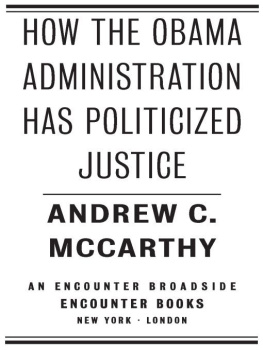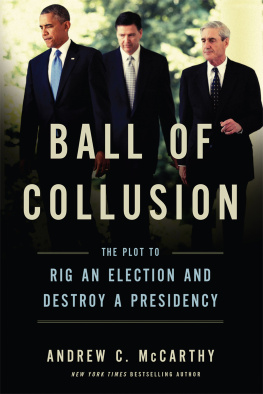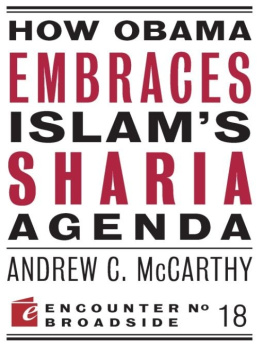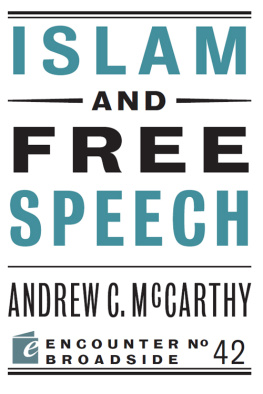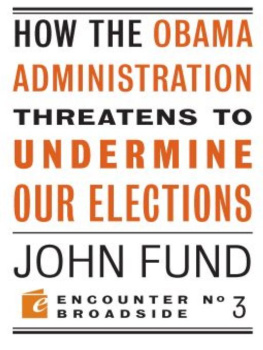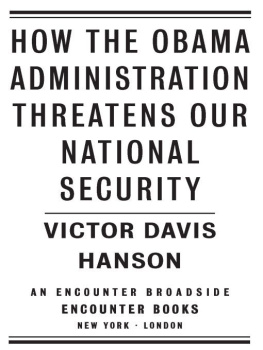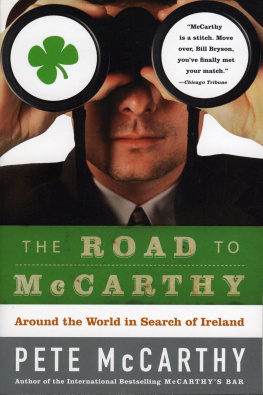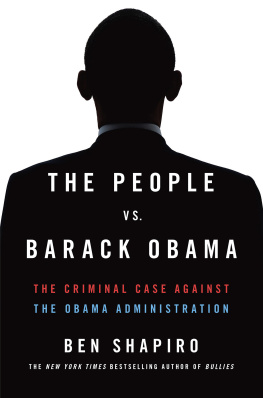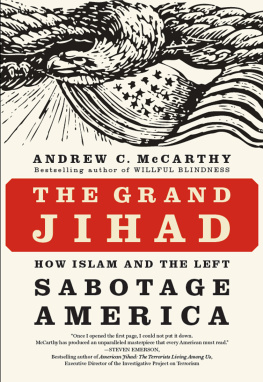KHALID SHEIKH MOHAMMED realized the end was near. The legions of left-wing lawyers whod volunteered their services to the al Qaeda Defense Bar had pulled out all the stops in their eight-year jihad against Bush-style counterterrorism. Their bte noire had been the military commission system, the time-honored procedure for trying war crimes. President Bush had attempted to reinstate it after the massacre of September 11, 2001. The effort reflected Americas determination that Islamic terrorists were not everyday criminal defendants to be swaddled in the Bill of Rights, but military enemies to be captured, imprisoned and executed.
For a while, the lawyers had derailed the effort, flooding the federal courts with challenges to the commissions legitimacy. But the tide had turned. Judges had finally declined further obstructions. Commission trials had begun, and two al Qaeda operatives were quickly convicted. When KSM had been grabbed in Pakistan back in 2003, he smugly told his captors that hed talk to them in New York... with his lawyer. To his chagrin, though, the maestro of 9/11 soon learned that the lawfare party of the 90s was over. He found himself talking to the CIA. And now it was December 2008. Stuck in Guantanamo Bay and facing the imminent prospect of a military trial, KSM made an announcement: he and four fellow 9/11 plotters were prepared to plead guilty - to brag that they were guilty - and to proceed to execution and Allahs great orgy in the sky.
Meanwhile, in Washington, a tectonic shift was under way. Barack Obama was blowing into town, fueled by a radical base that saw Bush, not KSM, as the real war criminal. Obamas campaign spokesman Eric Holder had fed the frenzy, promising the base a reckoning: An Obama administration would hold Bush officials accountable for what he portrayed as serial transgressions against the Constitution and international humanitarian law. When that Obama administration became a reality, Holder was tapped to be its attorney general. He threaded his new Justice Department - particularly its upper tier - with veterans of the al Qaeda Bar. The reckoning was at hand.
With a lot of palaver about ending Bushs politicization of justice, Holder went banana republic, turning his vast prosecutorial powers against the Obama Lefts Most Wanted list. Investigations were pursued against Bush administration lawyers and CIA interrogators. Holder made commitments to assist foreign tribunals considering torture charges. He shoveled into the public domain previously classified information about CIA interrogations and other Bush counterterrorism initiatives. And finally, in November 2009, after pulling the plug on KSMs military commission - in a case that was on the verge of wrapping up - the attorney general made the stunning announcement that the 9/11 jihadists would be transferred to Manhattan for prosecution in the civilian justice system. Holder gave KSM his wish: a New York City stage where, after rifling through government intelligence files for the next two years, he gets to put the United States on trial for the stratagems that protected Americans from reprises of 9/11. It is the ultimate politicization of justice by a master of the game.
Holder gave KSM his wish:
a New York City stage where
he gets to put the United States
on trial for the stratagems that
protected Americans from reprises
of 9/11. It is the ultimate
politicization of justice by a
master of the game.
REAL POLITICIZATION OF JUSTICE
During the tenure of Attorney General Alberto Gonzales, Democrats caterwauled about politicization at the Bush Justice Department. The hyperbolic allegation was largely based on Bushs firing of eight U.S. attorneys so they could be replaced by new appointees favored by influential Republicans. That sounds nefarious, but it is done by every administration. United States attorneys are executive branch officials who serve at the pleasure of the president and can be removed by the president for any reason - or no reason. The 93 U.S. attorney slots are coveted patronage, infused by political intrigue as senators and governors jockey to influence appointments in their states. Indeed, at the start of his first term, President Clinton summarily fired all but one of the incumbents. Charging that justice is politicized because of the replacement of U.S. attorneys, an inherently political exercise, is no more sensible than claiming that the air we breathe is polluted by carbon dioxide. (Yes, yes, I know.) Still, the charge gained traction in Democrats media-fueled campaign against the hapless Gonzales, a Bush confidant and thus a useful proxy for deriding post-9/11 national security policies.
The mantra that the Bush Justice Department had been politicized could not conceal the gaping hole in the Lefts indictment. There was no evidence of the only politicization that actually matters: the basing of enforcement decisions in individual cases on politics. A presidents choice of lawyers and enforcement priorities is political by nature, and we wouldnt want it any other way in a democracy. But Americans have always drawn a bright line between staffing and enforcement. When it gets down to the brass tacks of real investigations, politics has no place.
DOJs prosecution of individual legal cases must reflect our constitutional commitment to equal protection under the law. That is, it must not be corrupted by political considerations. The rule of law, part of the glue that holds a free society together, is dependent on evenhanded, nonpolitical law enforcement. That is why trial judges routinely instruct juries that cases must be decided strictly on the evidence, without fear or favor. Furthermore, freedom itself hinges on robust political debate, a fundamental constitutional value. Law enforcement that targets political adversaries, criminalizes policy disputes and shields political cronies is an aspect of tyranny.
When we talk about the bedrock principle that justice must not be politicized, it is this administration of justice that we mean. Yet it is precisely the administration of justice that has been hijacked by partisan politics in the Obama administration.
Law enforcement that targets
political adversaries, criminalizes
policy disputes and shields
political cronies is an aspect
of tyranny.


